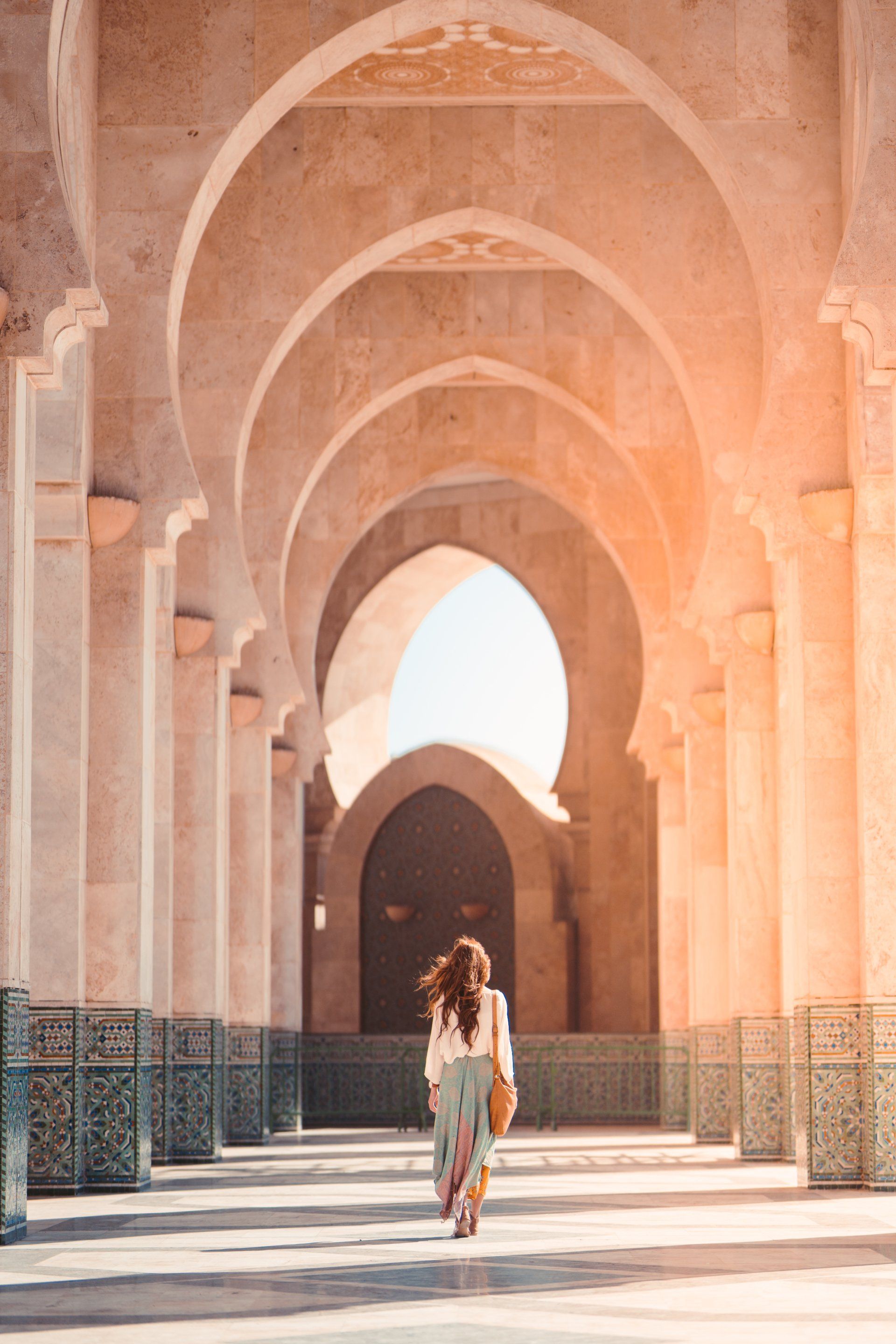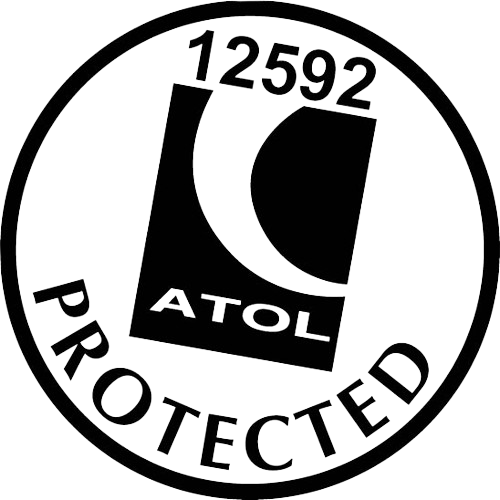Morocco
Morocco
Morocco is a country that serves as a captivating gateway between Europe and Africa, renowned for its stunning diversity in landscapes, rich history, and vibrant culture. From the bustling souks and aromatic spice markets of Marrakech to the serene expanses of the Sahara Desert, Morocco offers a tantalizing feast for the senses.
Morocco is steeped in history, evident in its ancient medinas, centuries-old fortresses, and intricate Islamic architecture. Cities like Fez, Marrakech, and Meknes are famous for their historic medinas, filled with winding alleys and bustling markets that have traded goods for centuries. Meanwhile, the Roman ruins of Volubilis show the depth of Morocco's ancient past.
The country is also celebrated for its culinary landscape, which is as diverse as its geography. Moroccan cuisine is a delicious blend of Berber, Arab, Andalusian, and Mediterranean influences, featuring dishes like tagine, couscous, and harira. The traditional Moroccan mint tea, served sweet and hot, epitomizes the warm hospitality that is characteristic of Moroccan culture, making anyone who visits feel welcomed and cherished.
Morocco is a country that serves as a captivating gateway between Europe and Africa, renowned for its stunning diversity in landscapes, rich history, and vibrant culture. From the bustling souks and aromatic spice markets of Marrakech to the serene expanses of the Sahara Desert, Morocco offers a tantalizing feast for the senses.
Morocco is steeped in history, evident in its ancient medinas, centuries-old fortresses, and intricate Islamic architecture. Cities like Fez, Marrakech, and Meknes are famous for their historic medinas, filled with winding alleys and bustling markets that have traded goods for centuries. Meanwhile, the Roman ruins of Volubilis show the depth of Morocco's ancient past.
The country is also celebrated for its culinary landscape, which is as diverse as its geography. Moroccan cuisine is a delicious blend of Berber, Arab, Andalusian, and Mediterranean influences, featuring dishes like tagine, couscous, and harira. The traditional Moroccan mint tea, served sweet and hot, epitomizes the warm hospitality that is characteristic of Moroccan culture, making anyone who visits feel welcomed and cherished.

Morocco offers an array of experiences that cater to all types of travelers. For the adventurers, the Atlas Mountains provide excellent trekking opportunities, while the windswept beaches of Essaouira and Agadir are perfect for surfing. The dunes of the Sahara offer the quintessential desert experience, with camel treks and starlit nights spent under traditional Berber tents.
Culturally, Morocco is a treasure trove of artisan crafts, including vibrant textiles, detailed pottery, and intricate jewelry. The country's artisanship is best explored through its bustling souks, where the art of bargaining is as traditional as the goods for sale.
For those interested in relaxation, Morocco’s many hammams (traditional bathhouses) offer a cultural experience that is both indulgent and unique, involving steam baths and massages. Luxury resorts and riads (traditional houses) throughout the country provide serene escapes with beautiful Moroccan architecture, complete with inner courtyards and mosaic tiles, offering a peaceful retreat from the bustling city life.
Morocco’s climate varies significantly by region, offering everything from Mediterranean climates along the coasts to more extreme conditions in the mountains and deserts. Coastal areas enjoy mild, wet winters and warm, dry summers, making cities like Tangier and Casablanca popular year-round destinations.
The best times to visit Morocco generally are during the spring (March to May) and autumn (September to November), when the weather is most pleasant across most of the country. These periods feature mild temperatures and less rainfall, ideal for exploring both cities and the countryside.
Travelers should be aware of the sirocco, a hot desert wind that can raise temperatures dramatically and bring sand into the air, particularly in the spring. Additionally, mountainous areas can be prone to sudden weather changes and require appropriate gear for trekking.
Currency: Moroccan Dirham (MAD)
Time Zone Difference: GMT +0; GMT +1 during daylight saving time
Estimated Flight Time from the UK: Approximately 3 hourts to Marrakech
Visa Requirements: No visa is required for UK nationals for stays up to 90 days.
Spoken Languages: Arabic is the official language; Berber languages are also widely spoken. French is used for business and communication, and English is increasingly spoken, especially in tourist areas.
Tipping Culture: Tipping is customary and appreciated in Morocco. A tip of around 10-15% is expected in restaurants, and small tips for other services, like guides and taxi drivers, are also customary.
Our Holiday Destinations
New paragraph
Agadir
Agadir offers a unique blend of traditional Moroccan culture and modern resort comforts, featuring a beautiful beachfront promenade, excellent seafood, and opportunities for golf and water sports.
Casablanca
Known for its architectural landmarks and economic importance, Casablanca is a dynamic blend of old-world charm and contemporary progress, with the stunning Hassan II Mosque and vibrant markets.
Marrakech
Dive into the heart of Moroccan culture in Marrakech, where the medina buzzes with historical allure, vibrant souks, and the enchanting Jemaa el-Fnaa square, alive with storytellers, musicians, and snake charmers.

